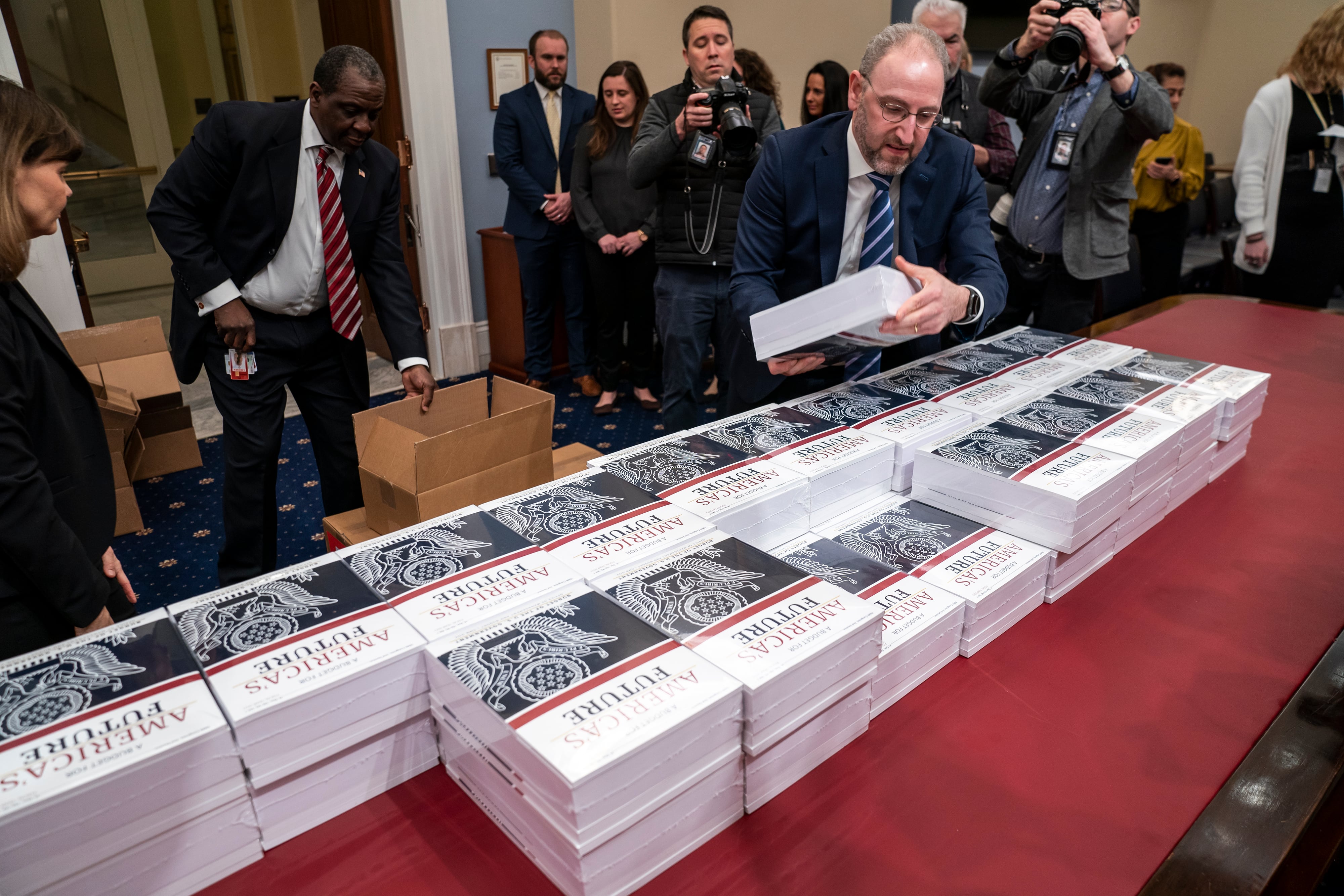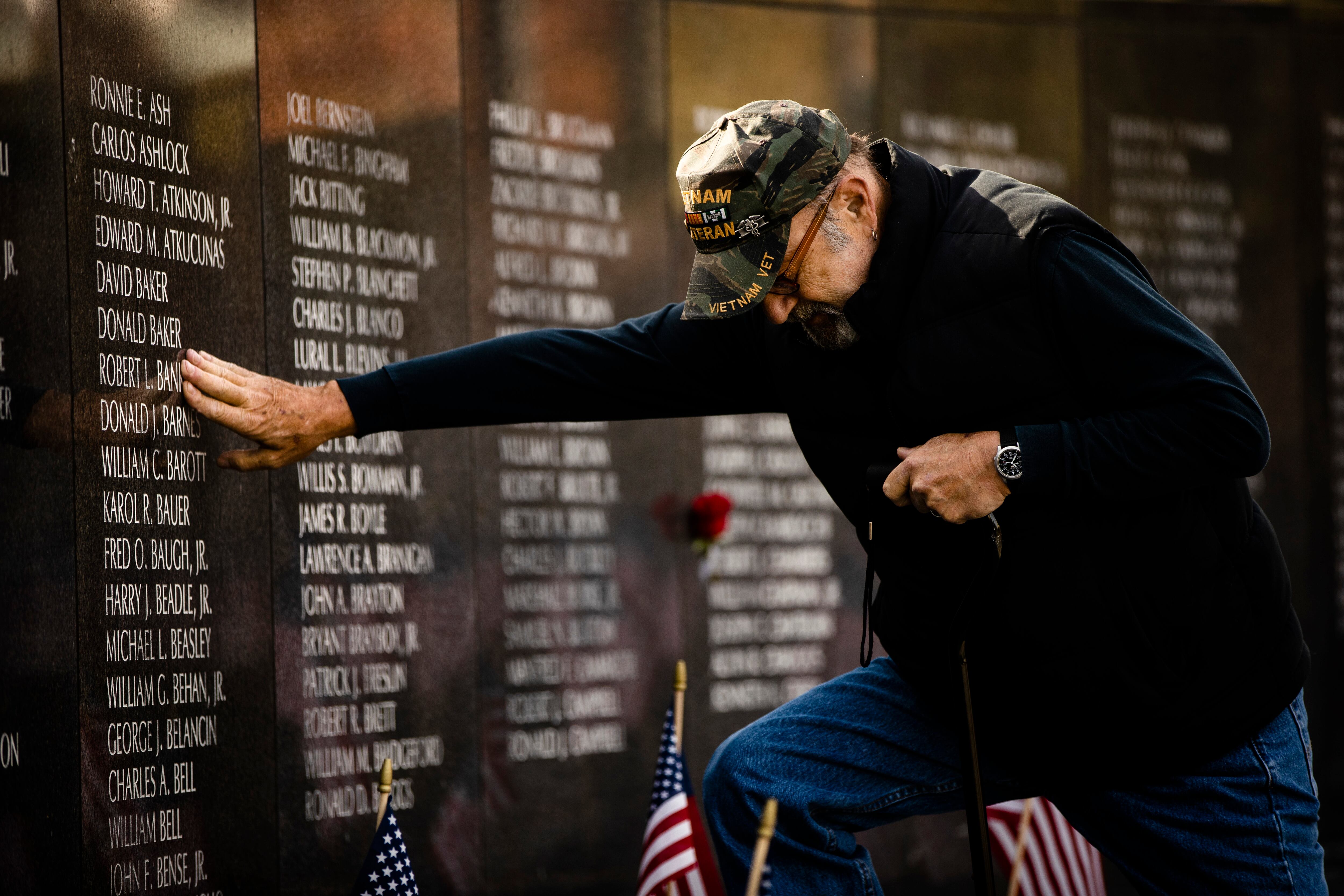Even with the Department of Veterans Affairs slated to see its largest budget ever in fiscal 2021, a coalition of advocates believes the government needs to spend even more next year to meet the increasing health care and transition needs of veterans across the country.
On Wednesday, officials from Disabled American Veterans, Paralyzed Veterans of America and Veterans of Foreign Wars unveiled their annual independent budget proposal for VA, calling for about $4 billion more in spending than what the White House has requested for next fiscal year.
The document, designed to highlight unmet needs within the veterans community, serves as a discussion point for the VA funding debate each year and is closely watched by numerous members of Congress. Members of the groups spent Wednesday delivering the document to their offices, highlighting what they see are shortfalls in the administration’s spending plans.
RELATED

Last week, White House officials unveiled their proposal for a more than $240 billion budget in fiscal 2021, up 10 percent at a time most non-military departments are facing proposed decreases in funding.
Authors of the independent budget proposal acknowledged that bump but added that “the real measure should be how well the funding matches the demand for veterans’ benefits and services.”
Their proposal calls for roughly $4 billion in additional planned VA spending, including nearly $1 billion more in anticipated increased usage of department health care services over the next year (VA officials have said they expect only modest increases) and $2 billion for additional medical program funding.
“Specifically, we believe there is a real need for funding to provide additional centralized prosthetics funding, expand and improve services for women veterans, support renewed authority for reproductive services, continue the eligibility expansion for VA’s comprehensive caregiver support services to severely injured veterans of all eras, and to close the gap in reported vacancies across the Veterans Health Administration,” they wrote.
Several of those items will see boosts in the administration’s budget, but the outside advocates say support for them needs to go even further.
The group is also calling for about $1.7 billion more in major construction funding, noting overdue seismic corrections work at numerous existing VA facilities nationwide along with other infrastructure needs.
RELATED

To offset some of those costs, the independent budget calls for trims in information technology spending (about $300 million less), National Cemetery Administration spending (about $25 million less), and general administration funding (about $45 million less).
Advocates said they believe that “Congress remains committed to doing the right thing” for veterans and noted that the department has seen steady funding increases in recent years.
In fiscal 2001, the VA budget totaled about $45 billion. In fiscal 2011, it was about $125 billion. The current year’s funding total is nearly $221 billion.
Lawmakers are expected to spend the next few months negotiating spending levels for every federal agency ahead of the start of the new fiscal year on Oct. 1, but many members of Congress have been skeptical they can get the work done before that deadline given the shortened work session windows this year due to the November elections.
The full independent budget proposal is available online.
Leo covers Congress, Veterans Affairs and the White House for Military Times. He has covered Washington, D.C. since 2004, focusing on military personnel and veterans policies. His work has earned numerous honors, including a 2009 Polk award, a 2010 National Headliner Award, the IAVA Leadership in Journalism award and the VFW News Media award.





